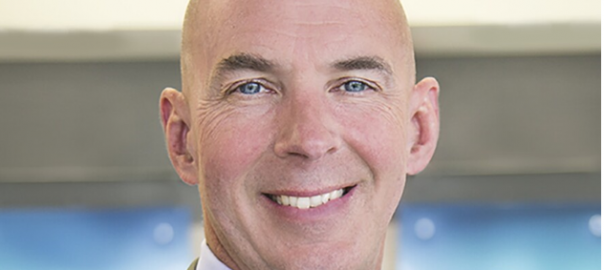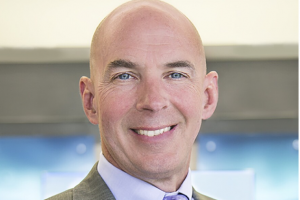
New market rules will support and advance the objectives of the state’s Climate Leadership and Community Protection Act

Two weeks ago, U.S. Secretary of Energy Jennifer Granholm visited the Capital Region to join Governor Kathy Hochul and other New York lawmakers to announce that the Port of Albany will help lead the nation in reaching its climate goals as the first offshore wind manufacturing hub in North America. While she was here, I was honored to host the Secretary and Congressman Paul Tonko for a tour of the New York Independent System Operator’s (NYISO) state-of-the-art control center. From our control center we will monitor the energy generated by the same wind turbines produced at the port to help power the grid of the future.
The rate and pace of change in the electric industry is exciting and unprecedented. Just last month, in her first State of the State address, Governor Hochul proposed doubling New York’s battery storage goals and accelerating electric vehicle adoption. At the NYISO, we’re aware of the critical role we play in this significant and critical energy transition, and of the essential partnerships between our organization, industry, and government needed to make that a reality.
Just as the calendar turned to 2022, the NYISO submitted market rule changes for consideration by the Federal Energy Regulatory Commission (FERC) which, if accepted, will stimulate the investment needed to meet the state’s decarbonization and renewable energy mandates. The proposal was approved by over 82 percent of NYISO market participants, following months of analysis and engagement with stakeholders, regulators, and policymakers through the NYISO’s open governance process. Those voting for the proposal include the New York State Utility Intervention Unit, the New York State Energy Research Development Authority, the New York State Power Authority, the Long Island Power Authority, and the City of New York.
If accepted by the FERC, the NYISO expects these new market rules will support and advance the objectives of the state’s Climate Leadership and Community Protection Act (CLCPA) – one of the nation’s most far-reaching and ambitious plans for combating climate change – by further opening wholesale electricity markets to significant investment in wind, solar, and battery storage development.
The NYISO has also played a role participating with the state’s Climate Action Council (CAC). The CAC, which was created as part of the CLCPA, has submitted a draft scoping plan for public comment and review that, when complete, will guide the state toward achieving its climate goals. In support of the CAC process, the NYISO presented its recent Climate Change Study, which examined how the bulk electric system might perform in 2030 and 2040 following achievement of CLCPA milestones. The study determined that periods of reduced output from intermittent wind and solar resources could challenge system reliability, which must be maintained to support businesses and residents alike and keep the state running and safe. The study also identified the need for energy resources that are both flexible and clean to help fill that gap and support reliability. Additional studies done by NYSERDA show similar conclusions.
These studies demonstrate that New York must proceed deliberately and responsibly in its transition away from fossil fuels in order to maintain reliability and avoid electric system problems experienced elsewhere in the nation and across the globe. These studies also underscore how industry and government must work together as we move toward a net-zero grid. The NYISO continues to be engaged with the CAC and other state entities to develop the final scoping plan due by early 2023.
Achieving the grid of the future is as challenging as it is necessary. Since the NYISO’s formation over twenty years ago, competitive electricity markets have delivered significant emissions reductions and saved New York consumers billions of dollars. Those markets are now playing a powerful role in helping the state reach its decarbonization and renewable investment goals. Working closely with our government partners, we will also maintain reliability of the system throughout this transition to support the health, safety, and welfare of all New Yorkers.
Rich Dewey is President & CEO of New York Independent System Operator.
